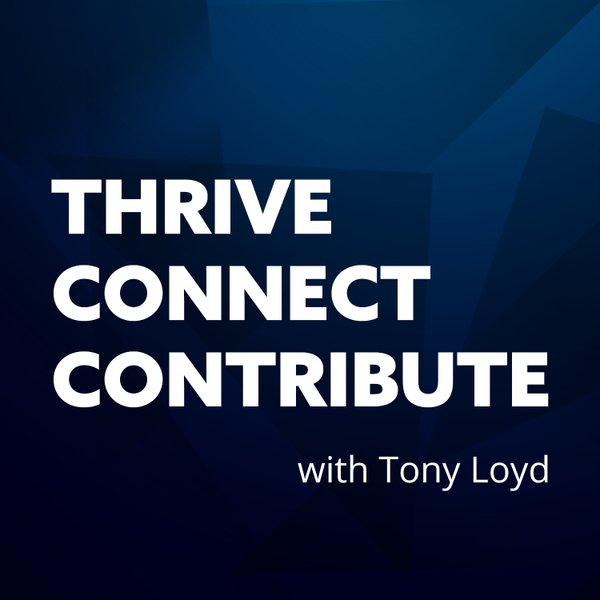
Connect to Contribute to the World with Stefan Phang
- S1E19
- 19:53
- June 12th 2020
Stefan Phang is driven to make a difference. He creates shared value through connections.
For more than thirty years, Stefan Phang has been working to protect children and end human trafficking. “When a family is in deep poverty, sometimes, the only thing they can sell is themselves, or their children,” Stefan explains.
Stefan has first-hand knowledge of the world of the underserved. He grew up in a shanti in Penang, Malaysia. “There was no running water. The toilet was an outhouse with a blue pail in a hole in the ground. When the pail was full, it was my job to take the pail to the river and clean the pail. I grew up in that kind of squalor. I joined gangs to protect myself from being bullied.”
Stefan went on to earn a bachelor’s degree in Microbiology and a master’s degree in Molecular Epidemiology. He is an accredited Child Protection Advocate
Today, Stefan works to end poverty and child trafficking, but not by working for a charity or an NGO. He is the Global Director for Creating Shared Value (CSV), at Diversey. Diversey is a provider of cleaning, sanitation, and maintenance products, systems, and services.
Turning Waste into Shared Value
“In a megacity in Asia, you stand on the seventh floor of a hotel. You look across the road, and you see a slum. You don’t have to go far to find the poor.
“There is this disparity between the luxury of this hotel, and across the road, you’ve got squalor. So, I was looking for a way to bridge this gap. How do we get resources from those who can provide it, to those who need it?
“When I go to talk to someone, and I ask them for resources such as cash, they will give me a little bit of money. So, what you do is, you ask for something that they’ll never say no to. You ask them for things they are going to throw away. You ask them for your trash.”
Stefan mapped the waste streams of hotels. Every year, a typical 400-room hotel generates 3.5 tons of solid soap waste. That same hotel generates about two to three metric tons of used linens such as bedsheets, pillowcases, and more.
“If you map the waste that a luxury five-star hotel generates, a lot of it can be recycled or upcycled into something useful. People can make a small income out of it,” Stefan explains. “If someone has a way to make money, they don’t have to take the drastic step of selling their children.”
Working with luxury hotel chains and local NGOs, Stefan created two community resilience programs. Soap for Hope converts used guest soaps into new soap bars. Linens for Life converts condemned hotel linens into useful items such as school uniforms. These programs provide work and income for underserved communities.
Being a Connector During COVID-19
According to Stefan, “During the COVID-19 pandemic, all communities are under lockdown. But not all lockdowns are created equal. The poor, underprivileged, and underserved suffer the most. These communities need sanitation and protection from the virus.
“These programs are designed to be community-based. But, how to do this now under lockdown? Also, how do we distribute these items to communities in need under lockdown conditions?”
Stefan and the teams did not give up. They converted the Linens for Life program to make facemasks. “We have distributed 150,000 soaps and 50,000 face masks. We deliver to slums and rubbish dumps. We are working globally, from Argentina to India to Indonesia. “
Stefan explains the drive that keeps him going. “There is a cliché that says that there are 3 types of people in the world. Those who make things happen. Those who watch things happen. And those who wondered what the hell happened.
“The needs out there are simply too great for me to say ‘well, there's nothing I can do from here’. I have Wifi. I have email. I have social media.
“You have choices. You can choose to be a person who make things happen. You can watch things happen. Or, you can wonder what the hell happened. For me, I made the choice to make things happen.
Thrive. Connect. Contribute.
We tell positive stories of people who, thrive in life, connect with others, and contribute to the world in the face of adversity.
We ask and answer this one question:
"Tell me about a time when you were resilient."
Why "Thrive. Connect. Contribute."? You are here on earth to connect with others and contribute to the world. But before you can connect and contribute, you must first practice self-care. In other words, you must thrive. Thrive. Connect. Contribute. In that order.